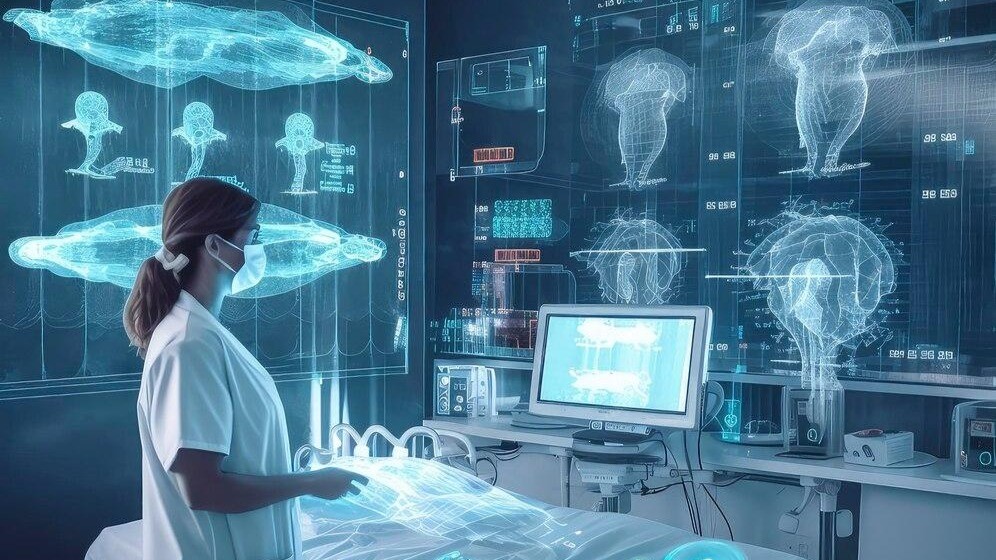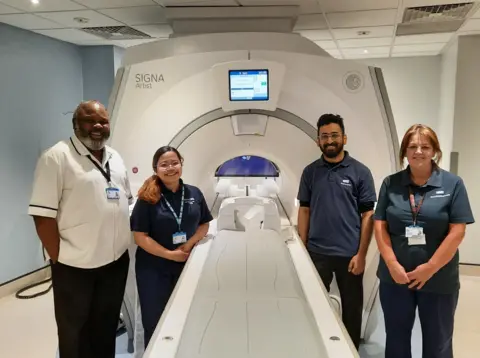
Hospitals are evolving into centers of advanced technology, going beyond their traditional role as places for healing. By 2025, artificial intelligence (AI) is set to significantly enhance patient care, as hospitals utilize advanced AI-driven tools to scan more patients. These systems analyze medical imaging with remarkable accuracy, detecting health issues that even experienced doctors might miss.
Take, for example, Sarah, a 45-year-old mother who visited a hospital in Vancouver for a routine checkup. An AI-powered scan identified a small, early-stage tumor in her lung—something that seasoned radiologists might have overlooked. Thanks to the intervention of AI, Sarah was able to start her treatment early, giving her a much better chance of recovery.
From detecting cancers to streamlining diagnoses, AI is revolutionizing healthcare. Additionally, Internet of Things (IoT)-enabled devices, such as wearable health monitors, are amplifying this impact. As hospitals adopt these technologies, they are not just scanning patients; they are saving lives with unprecedented speed and accuracy.

According to a report by the BBC, staff at NHS hospitals in Hull have found that AI technology has significantly reduced the time required for MRI scans, allowing them to accommodate more patients.
The Hull University Teaching Hospitals NHS Trust explained that the software employs algorithms to minimize background noise, resulting in sharper images and quicker scan times. Karen Bunker, head of imaging, noted, “This means we can reduce the scanning time on certain sequences while still maintaining the same imaging quality.”
The software has been installed at Hull Royal Infirmary and Castle Hill Hospital, with plans to introduce it at Scunthorpe General Hospital and Diana, Princess of Wales Hospital in Grimsby.
The Air Recon Deep Learning (ARDL) software has been integrated into the hospitals’ existing MRI machines. Staff reported that the software cuts an average of 10 to 15 minutes from scan times.
For instance, a routine MRI head scan previously took 30 minutes but now takes only 20 minutes. Similarly, a prostate scan duration has been reduced from 45 minutes to 30 minutes.As a result, the trust is now able to scan 31 lumbar spine patients in a 12-hour period, up from 21 previously. Ms. Bunker added, “People who struggle with claustrophobia or those with learning disabilities, who previously couldn’t tolerate a scan, are now finding they can endure the shorter scan times.” Additionally, staff observed that fewer children need to be given general anaesthetic to complete a scan.
Ready to Transform Your Tech Vision into Reality?
📞 Contact McGate Technologies Today!
Whether you're launching a project or need expert guidance, our team is here to help you innovate, scale, and succeed.
👉 Get in touch now — Let’s build the future together!